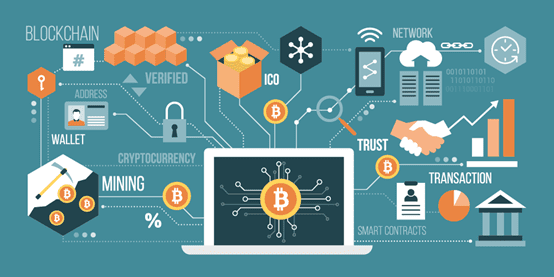How Companies can Prepare for the Gig Work Revolution

Workers are quitting employment at an alarming rate, resulting in a talent shortage that has corporations around the world scrambling. According to a recent Citrix poll, 40% of 1,000 knowledge professionals in the United States have left or are considering leaving at least one job in the last year. The event has been called “The Great Resignation.” However, it is “The Great Transformation.”
Workers aren’t quitting for traditional reasons like more money or a higher title, contrary to popular belief. The majority are abandoning ship in search of professions that allow them to conduct meaningful work from anywhere they want and provide equal possibilities to participate and progress their careers. According to the Citrix survey:
Money Doesn’t Mean Everything
Make no mistake about it: pay and benefits are vital. However, they are not what motivates workers to seek new opportunities. More than half of those surveyed who changed employment in the last 12 months took a pay drop. In addition, 60% joined companies and accepted ownership in exchange for a wage.
Flexibility is essential
Workers today desire flexible work arrangements that allow them to work where they are most productive. An overwhelming 80 percent of Citrix poll respondents said it was “extremely” or “very” vital for them to be able to “work from anyplace,” and 55 percent said they would accept less money to do so.
Employee Experience Has Never Been More Important
Without interference from sophisticated technology and processes, modern employees want to engage in innovative work, be productive, and make meaningful contributions to the organization that are valued. And if they can’t, they’re likely to go on:
- 60% of workers have quit occupations in search of positions that allow them to develop and attempt new things.
- 38% left because they were no longer interested or passionate about their previous position.
- Overcomplicated technology and processes irritated 31% of respondents.
- 47% believe they will be able to conduct more important work in their new employment, while
- 13 % see it as a chance to inject certainty into their future and restore some of the control they lost during the pandemic.
All of this should sound familiar. A similar exodus occurred in 2009, when workers in the knowledge industry began to pursue consultancy and freelancing employment, resulting in the so-called “gig economy.” They left for many of the same reasons that employees are leaving now. But the stage is set for them to return.
The Citrix poll intended to discover what motivates workers to stay in addition to why they quit. And it discovered:
- 41 percent believe their benefits are competitive and provide for their bodily and mental well-being in addition to financial security.
- 40% are able to work in a flexible manner.
- Given the continuous uncertainty, 27% are hesitant to make a change.
- If they leave, 12% will forfeit stock options or a retirement plan.
Companies can create a new class of “gigs with benefits” by embracing hybrid work models and digital technologies that enable people to work when, where, and how they want, while also providing the flexibility and autonomy that freelance, contract, and gig workers crave, as well as the stability that has become increasingly appealing as the pandemic progresses.
In doing so, they may be able to entice some valuable individuals with the abilities needed to keep the business running and thriving.
Creating the Space to Succeed
Companies can remove the friction from work that annoys and slows people down by using the correct digital workspace solutions. This is crucial because when employees feel empowered by the solutions they use rather than constrained by them, they are better able to focus, create, and deliver value.
Closing the Digital Gap
They can also help to bridge the new digital divide that hybrid models threaten to create by fostering an equal environment in which employees can participate and contribute in a transparent and efficient manner regardless of where they are located.
Whether at home, the office, or on the road, digital workspaces give employees consistent, secure, and dependable access to all of the tools and information they need to perform well.
Winning the Talent Battle
The power dynamic has shifted. Employees are commanding flexible employment that allow them to innovate and move forward, rather than demanding them.
To remain vibrant in one of the world’s tightest labor markets, businesses must accept this reality and embrace the new, flexible work models that will drive the future of work, leveraging them to cultivate a workforce that is flexible, agile, and empowered to adapt to changing conditions and move their business forward.







